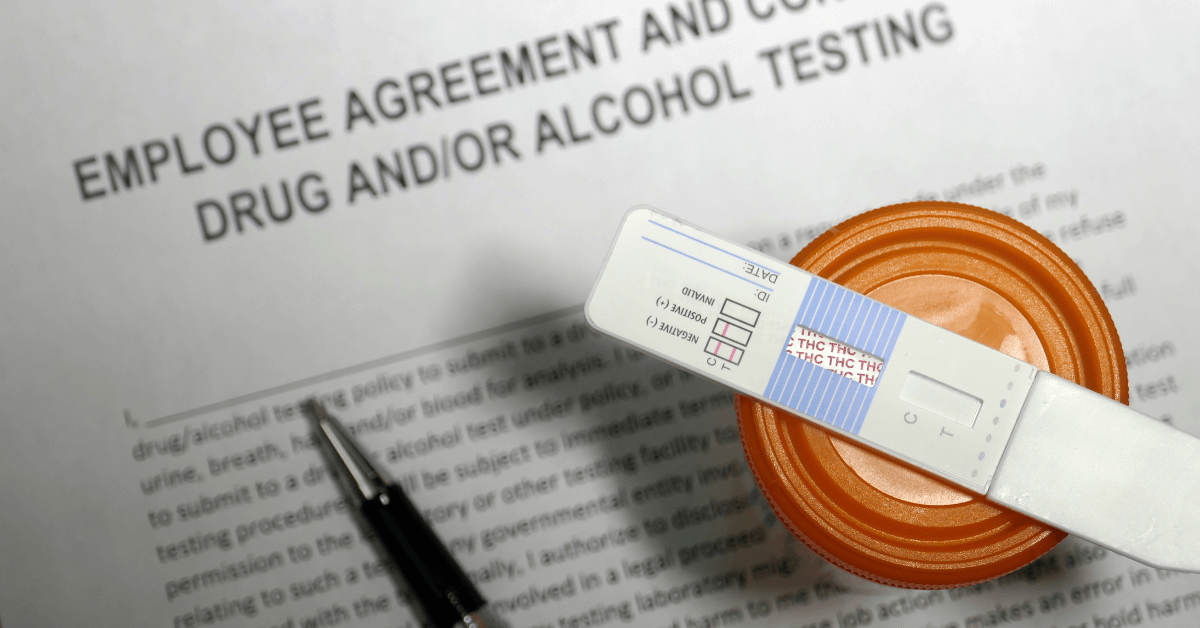Maybe you’re about to start a new job, or maybe you get chosen for a random drug test at your workplace. If you’ve used an illegal substance that goes against your company’s drug policy, you might be facing suspension or termination. But could you also be facing state or federal drug charges?
Is drug testing prohibited by federal law? No, but current federal laws do protect employees from drug-related discrimination in the workplace. Employers are allowed to request a random or pre-employment drug test for illegal substances since such tests aren’t viewed as medical exams. They can also report you to the authorities if you fail the test.
To better explain the legality, methodology, and possible legal repercussions of drug tests in the workplace, we’ll first look at the current federal laws with the biggest impact on drug testing before reviewing the different types of drug tests that are most commonly used.
Federal Drug Testing Laws
When focusing on federal drug laws and how they impact workplace drug testing, the two most important pieces of legislation for employers and employees to know about are:
- The Drug-Free Workplace Act of 1988 – To help eliminate the use of drugs by federal employees and create a drug-free federal workplace, in 1986 President Reagan enacted Executive Order 12564. This order both prohibited federal employees from using illegal drugs and required federal agencies to establish mandatory and voluntary workplace drug testing programs for their employees.
Two years later, the Drug-Free Workplace Act was passed and added to the United States Code (U.S.C.) under Title 41, Chapter 81. Essentially, this law applies to any organization that receives federal contracts or grants, and it requires such organizations to provide a drug-free workplace to be eligible for those contracts or grants. While 41 U.S.C. 81 doesn’t expressly require the use of drug testing, it does allow testing as a means of supporting drug-free workplace programs. - Americans with Disabilities Act (ADA) of 1990 – Under this law, employers with 15 or more employees aren’t allowed to discriminate against qualified job applicants and employees due to a physical disability. While this doesn’t protect employees using illegal drugs, it does make it illegal for employers to discriminate against recovering alcoholics and drug addicts who’ve sought treatment or rehabilitation.
Moreover, employers with drug testing programs need to be cautious with who they ask to take a drug test. Focusing on those who merely act or look intoxicated can be classified as discrimination if the employee has a physical disability or medical condition that causes the same symptoms.
Ultimately, the ADA doesn’t prohibit employers from requiring a pre-employment drug test from an applicant, as such screenings aren’t viewed as being medical tests. Alcohol testing, on the other hand, is viewed as medical testing under the ADA. As such, employers aren’t allowed to request a pre-employment alcohol test.
State Drug Testing Laws
In addition to the federal workplace drug testing laws mentioned above, several states also have individual drug-free workplace program requirements. These laws can vary widely from state to state, so employers with a drug testing policy need to know the regulations for their area. For example, some states may require the drug testing policy to be written down before being enforced, while others may require certain labs to conduct the testing.
Types of Drug Tests
An employer can require several types of drug tests based on the kind of substance being tested for and the specimen being collected for the test. The three most common types include:
- Saliva Testing – This type of test best detects recent substance use (i.e., from a few minutes up to 48 hours). It’s also easier and more efficient to collect than the other types.
- Urine Testing – This is the most common drug test used and the only approved method for federal programs that require drug screening. It detects less recent substance use (i.e., from a few days up to two weeks) as it requires that substance to be processed by the body first.
- Hair Testing – This test examines a person’s hair follicle to find traces of substances. Given how long it takes for hair to grow, this method looks more for prolonged, regular substance use and has a much larger detection timeline (i.e., a few weeks up to several months).
There are also drug tests that use an individual’s blood or sweat, but these aren’t as commonly used and can have other limitations that make them less viable than the ones mentioned above.
Consequences for Failing a Drug Test Result
If an existing or prospective employee tests positive for an illegal substance, it jeopardizes their future with the organization and creates anxiety about facing criminal charges. This can be especially concerning for people with a medical prescription for a controlled substance the test will likely detect.
While employers can notify the police of a failed drug test, it’s unlikely to happen unless the individual is on probation due to a history of criminal or drug-related activity. The individual probably won’t be arrested or charged with a crime without such a history. The specific consequences ultimately depend on the drug-free policy the organization uses. Still, the most likely result will either be the candidate doesn’t receive an offer for employment or an employee could lose their job.
If a failed drug test has you facing jail time, you should contact an attorney with experience to defend your rights and protect your future. Schedule a free consultation today.
